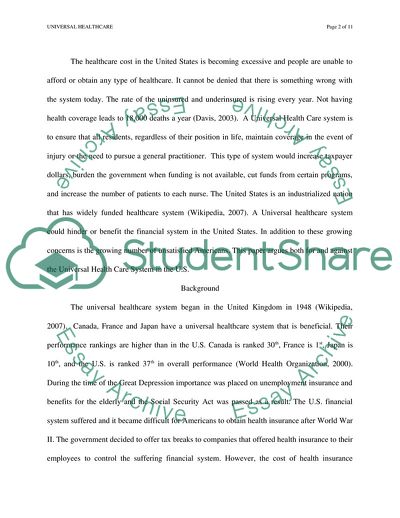Cite this document
(Could a Universal Health Care System Work in the United States Term Paper Example | Topics and Well Written Essays - 2000 words, n.d.)
Could a Universal Health Care System Work in the United States Term Paper Example | Topics and Well Written Essays - 2000 words. https://studentshare.org/health-sciences-medicine/1711740-could-a-national-health-system-work-in-the-united-states
Could a Universal Health Care System Work in the United States Term Paper Example | Topics and Well Written Essays - 2000 words. https://studentshare.org/health-sciences-medicine/1711740-could-a-national-health-system-work-in-the-united-states
(Could a Universal Health Care System Work in the United States Term Paper Example | Topics and Well Written Essays - 2000 Words)
Could a Universal Health Care System Work in the United States Term Paper Example | Topics and Well Written Essays - 2000 Words. https://studentshare.org/health-sciences-medicine/1711740-could-a-national-health-system-work-in-the-united-states.
Could a Universal Health Care System Work in the United States Term Paper Example | Topics and Well Written Essays - 2000 Words. https://studentshare.org/health-sciences-medicine/1711740-could-a-national-health-system-work-in-the-united-states.
“Could a Universal Health Care System Work in the United States Term Paper Example | Topics and Well Written Essays - 2000 Words”. https://studentshare.org/health-sciences-medicine/1711740-could-a-national-health-system-work-in-the-united-states.


